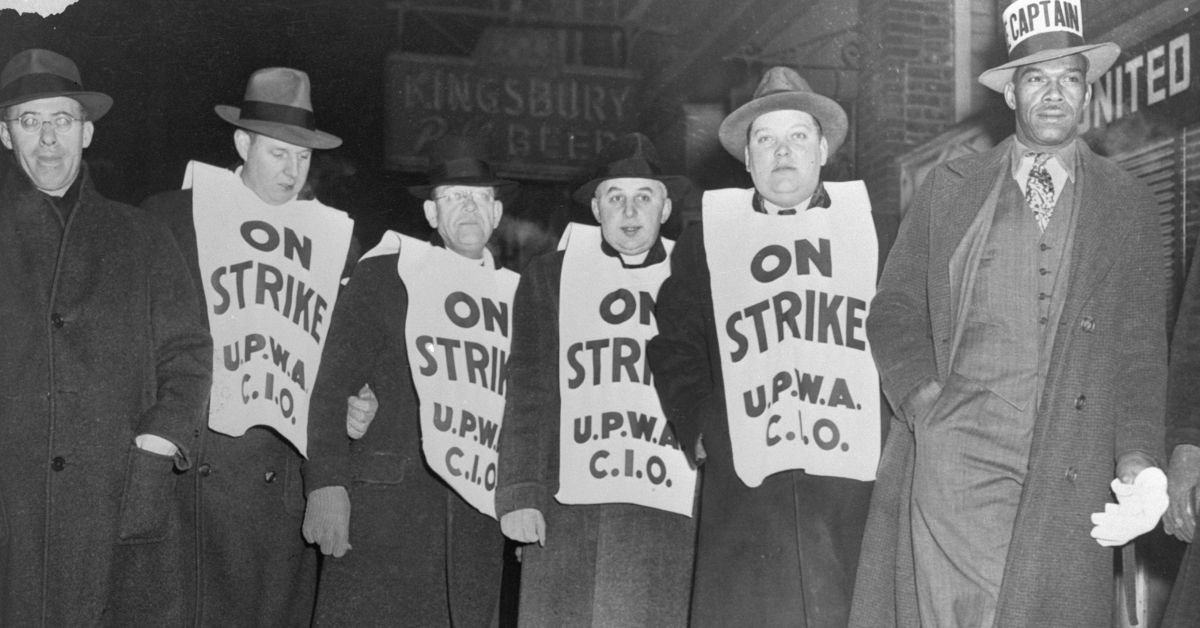Saul Alinsky wrote an epigraph describing the rebellious angel Lucifer as "the first radical known to man" in his book "Rules for Radicals."
Alinsky did not dedicate "Rules for Radicals" to Lucifer.
On 19 July 2016, former presidential candidate Dr. Ben Carson gave a speech before the Republican National Convention in which he claimed that Rules for Radicals author Saul Alinsky, who he said is "greatly admired" by Democratic presidential candidate Hillary Clinton, "acknowledged" Lucifer on the dedication page of the book:
Now, one of the things that I have learned about Hillary Clinton is that one of her heroes, her mentors, was Saul Alinsky. And her senior thesis was about Saul Alinsky. This was someone she greatly admired and that affected all of her philosophies subsequently. Now, interestingly enough, let me tell you something about Saul Alinsky.
He wrote a book called "Rules for Radicals." On the dedication page it acknowledges Lucifer, the original radical who gained his own kingdom. Now, think about that. This is a nation where our founding document, the Declaration of Independence, talks about certain inalienable rights that come from our creator, a nation where our Pledge of Allegiance says we are "One nation under God." This is a nation where every coin in our pockets and every bill in our wallet says, "In God We Trust." So are we willing to elect someone as president who has as their role model somebody who acknowledges Lucifer? Think about that.
But while it's true that one of three epigraphs on an introductory page (not a dedication page) of Rules for Radicals characterizes Lucifer as the "first radical known to man who rebelled against the establishment," the book is neither dedicated to Lucifer, nor need it be read as an endorsement of devil worship or Satanism, despite what Carson seems to have implied.
This is the epigraph in question:
Lest we forget at least an over-the-shoulder acknowledgment to the very first radical: from all our legends, mythology, and history (and who is to know where mythology leaves off and history begins — or which is which), the first radical known to man who rebelled against the establishment and did it so effectively that he at least won his own kingdom — Lucifer.
— SAUL ALINSKY
The name "Lucifer" appears nowhere else in the book, nor does the name "Satan." The word "devil" is used several times, but only in the generic sense of "enemy." By contrast, there are many references to Christianity — particularly early Christianity, the adherents of which Alinsky characterizes as "revolutionary" and compares to the young radicals of his own time (the book was first published in 1971). And, though Alinsky's book is a paean to neither Satanism nor Christianity, he does claim his principles rest on Judeo-Christian values:
Believing in people, the radical has the job of organizing them so that they will have the power and opportunity to best meet each unforeseeable future crisis as they move ahead in their eternal search for those values of equality, justice, freedom, peace, a deep concern for the preciousness of human life, and all those rights and values propounded by Judaeo-Christianity and the democratic political tradition. Democracy is not an end but the best means toward achieving these values. This is my credo for which I live and, if need be, die.
The point is this: Whatever else it may be and however one may feel about his ideas, Rules for Radicals is not a brief for Satan. Alinsky's opening acknowledgment of Lucifer is a literary allusion to one of the oldest stories of rebellion against authority in Western civilization. On careful reading, there's no evidence he intended it to be understood in any deeper or darker sense.
As to Carson's implication that Hillary Clinton's reputation is tainted by anything Alinsky said or wrote because he is, according to Carson, "one of her heroes, her mentors ... someone she greatly admired and that affected all of her philosophies subsequently," all of that appears to be based on hyperbole. It's true that Clinton interviewed Alinsky and wrote her undergraduate thesis on his political views, but that doesn't make him a "hero" or "mentor." A New York Times review characterized her thesis as follows:
Ms. Rodham endorsed Mr. Alinsky’s central critique of government antipoverty programs — that they tended to be too top-down and removed from the wishes of individuals.
But the student leader split with Mr. Alinsky over a central point. He vowed to "rub raw the sores of discontent" and compel action through agitation. This, she believed, ran counter to the notion of change within the system.
Similarly, in a passage about Alinsky in her 2003 memoir, Living History, Clinton wrote:
Alinsky was a colorful and controversial figure who managed to offend almost everyone during his long career. His prescription for social change required grassroots organizing that taught people to help themselves by confronting government and corporations to obtain the resources and power to improve their lives. I agreed with some of Alinsky's ideas, particularly the value of empowering people to help themselves. But we had a fundamental disagreement. He believed you could change the system only from the outside. I didn't. Later, he offered me the chance to work with him when I graduated from college, and he was disappointed that I decided instead to go to law school. Alinsky said I would be wasting my time, but my decision was an expression of my belief that the system could be changed from within.
Based on what she has actually said and written about Saul Alinsky, to characterize Hillary Clinton as a starry-eyed acolyte of the Rules for Radicals author is a stretch.

